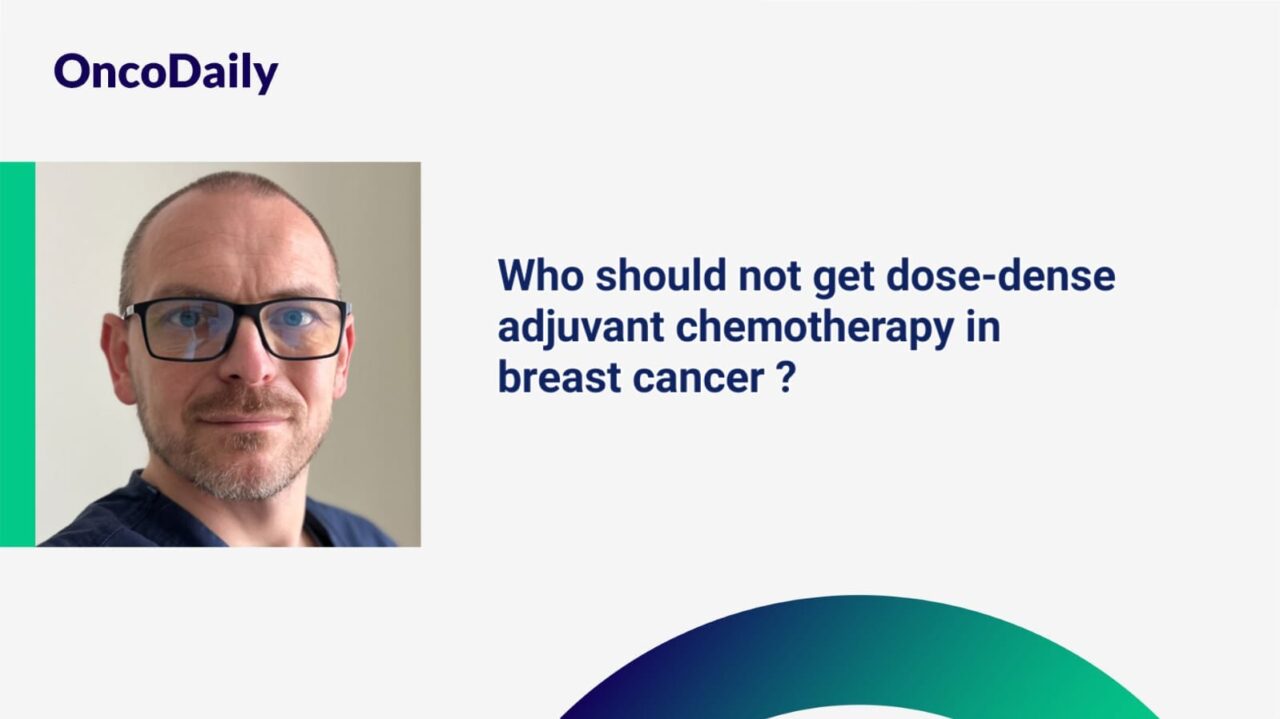Piotr Wysocki recently posted on LinkedIn:
“For many years, dose-dense adjuvant chemotherapy has been considered the standard approach to high-risk breast cancer patients in the US. However, Europe was reluctant to accept this strategy in daily clinical practice. This situation has profoundly changed with the publication of results from the European phase III trial by Gruppo Italiano Mammela (GIM), which demonstrated significant improvement in DFS and OS with the use of dose-dense chemotherapy.
However, since all the studies on dose-dense chemotherapy used suboptimal dosing of paclitaxel, the question regarding the role of dose-dense chemotherapy, if combined with the current standard dosing of taxanes, remained. Luckily, another European study has addressed this issue – PANTHER.
This phase III study enrolled high-risk breast cancer patients (node-positive or node-negative, hormone receptor-negative breast cancer at least 20 mm in size and grade 3 or patients younger than 35 years). Patients were randomized to the experimental arm 4 times ddEC à 4xddDocetaxel or to the control arm – 3xFEC –> 3xdocetaxel. Patients with HER2-positive breast cancer (17%) received trastuzumab per local standards.
After a median follow-up of 10.3 years, the results showed significant differences:
- 10-year breast cancer relapse-free survival (BCRFS) – 81.4% (dose-dense) v. 77.7% (no dose-dense); HR=0.80 [95% CI, 0.65 to 0.98]
- 10-year EFS event rate – 76.8% (dose-dense) v 72.4% (no dose-dense) – HR, 0.78 [95% CI, 0.65 to 0.94]
- 10-year DDFS – 82.8 (dose-dense) v. 79.1% (no dose-dense) – HR, 0.79 [95% CI, 0.64 to 0.98]; P = .030
- no significant difference in 10-year OS – 84.9% (dose-dense) v 83.4% (no dose-dense) – HR, 0.82 [95% CI, 0.65 to 1.04]
There is no doubt that dose-dense chemotherapy based on anthracyclines + cyclophosphamide combination should be considered standard treatment in all high-risk breast cancer patients. Considering that the majority of patients treated with chemotherapy are at high risk of relapse, the use of dose-dense chemotherapy owing to its activity and safety should be considered in all patients qualified for adjuvant chemotherapy.
However, the role of dose-dense taxanes in an adjuvant setting is less clear, and as for now, the standard approaches mainly resulting from the E1199 study involve weekly paclitaxel or three-weekly docetaxel.
Tailored Dose-Dense Versus Standard Adjuvant Chemotherapy for High-Risk Early Breast Cancer: End-of-Study Results of the Randomized PANTHER Trial.”
Authors: Alexios Matikas, Volker Möbus, Richard Greil, Anne Andersson, Günther G. Steger, Michael Untch, Tommy Fornander, Per Malmström, Sabine Schmatloch, Hemming Johansson, Mats Hellström, Yvonne Brandberg, Michael Gnant, Sibylle Loibl, Theodoros Foukakis, and Jonas Bergh.

Source: Piotr Wysocki/LinkedIn
Piotr Wysocki leads the Clinical Oncology Department at University Hospital and the Faculty of Oncology at Jagiellonian University-Medical College in Krakow, Poland. As an advisor to the Polish Ministry of Health, he shapes the national cancer strategy.
His clinical expertise spans the systemic treatment of breast, gynecologic, and genitourinary cancers, with a focus on developing innovative metronomic chemotherapy-based therapies for advanced cancer patients who have undergone prior treatment.
Read other posts by Piotr Wysocki published on OncoDaily.


